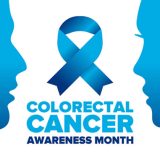

Chronic kidney disease (CKD) is one of the leading causes of death, ranking as number 12 globally. As CKD progresses, it turns into kidney failure, which requires treatments such as dialysis or transplantation.
There have been several studies done over the years that show lower risks for reduced estimated glomerular filtration rate (eGFR) and CKD among regular coffee drinkers. Coffee contains compounds that come with anti-inflammatory, antioxidant, and antifibrotic (reduces scarring of tissues) effects.
Some concerns with these studies are that they contain confounding variables, which can influence the result of the experiment. For example, individuals with CKD risk factors such as smoking, high blood pressure, and high body mass index, typically drink more coffee.
A recent study published by American Journal of Kidney Diseases (1) wanted to overcome these limitations by using a Mendelian randomization (MR) for their research. Observational studies can be challenging to control since they may be impacted by social, behavioral, or physiological factors. MR uses genes that affect the disease status indirectly and tests its effect on the exposure of interest. In this case, how coffee consumption impacts kidney health.
This study consisted of 227,666 participants in the United Kingdom. Researchers analyzed 2,126 single-nucleotide polymorphisms (a DNA sequence) that were associated with coffee consumption and measured its influence on kidney outcomes. (1)
Results showed that increased consumption of coffee among regular coffee drinkers showed a protective effect against CKD with glomerular filtration rate (GFR) categories 3 to 5, eGFR, and albuminuria (protein in urine).
A standard GFR rate is 90 mL/minute or higher in most healthy people.
Here are how the other categories compare (2):
- Stage 3 – GFR between 30-59 mL/min
- Stage 4 – GFR between 15-29 mL/min
- Stage 5 – GFR of 15 mL/min or less
Essentially, the lower the filtration rate, the lower the kidneys are functioning.
The active ingredient in coffee that produces these results is still uncertain, but researchers believe it is the non-caffeine compounds, which reduces inflammation and oxidative stress. Researchers also mentioned that caffeine could be the factor in preventing the reduction of eGFR.
How Can I Improve My Kidney Function?
Unfortunately, there is not a cure for CKD. There are, however, strategies to prevent further progression of kidney failure.
For all the diagnosed cases of CKD, about two-thirds of them are caused by hypertension or diabetes. Control of both blood pressure and blood sugar is critical.
Blood pressure can be controlled by (3):
- Consuming 1,500 milligrams or less of sodium (salt)
- Moderately exercising (such as taking a 30-minute walk each day)
- Limiting alcohol consumption
- Maintaining a healthy weight
Ensuring your blood sugar is at a healthy level is vital, because an elevated level may cause damage to the small blood vessels in your kidneys. When that happens, your kidneys are not able to filter your blood properly. Waste materials will begin to build up in your blood, your body will retain salt and water (which can result in swelling and weight gain), and you could have protein in your urine (4).
If you have diabetes, make sure you are managing your blood sugar levels by home-monitoring and following the diet prescribed to you by your physician or dietitian.
You can also reduce your risk of developing kidney disease with these preventatives (5):
- Following instructions on over-the-counter medications
- Managing medical conditions with assistance from a doctor
- Not smoking
What Are the Signs that Something Is Wrong with Your Kidneys?
Your kidneys are highly adaptable and can make up for lost function. Therefore, signs and symptoms of CKD may not present themselves until kidney function is significantly low.
11 signs and symptoms of chronic kidney disease can include (5):
- Nausea
- Vomiting
- Loss of appetite
- Fatigue and weakness
- Sleep problems
- Changes in urination
- Muscle twitches and cramps
- Swelling of feet and ankles
- Chest pain, if fluid begins to build up around the heart
- Shortness of breath, if fluid begins to build up in the lungs
- High blood pressure (hypertension) that is difficult to control
These signs and symptoms are common for other illnesses as well, which makes it difficult to tell if they are due to kidney disease or another problem. For that reason, follow up with your doctor if you’re noticing any of these occurring.
What Does it Mean When Your Kidney Function Is Low?
The main job of your kidneys is to filter and remove waste products in your blood. They contain about one million functional units referred to as nephrons. With every nephron comes a glomerulus and tubule. Think of these as tiny filters in your kidneys.
Your kidneys can filter approximately 200 quarts of fluid each day, with about 198 quarts entering back into the blood and the remaining being waste products that become urine. If your kidneys are not functioning correctly, that waste does not get filtered and ends up building in the blood. (3) As time passes, you will begin to notice the signs and symptoms previously mentioned.
What Causes Loss of Kidney Function?
If you live long enough, you are likely going to develop kidney dysfunction. Healthy individuals above the age of 40 will have their filtration rate decrease by about 1% per year (3). Don’t be alarmed, though. You are born with an extensive amount of kidney capacity, which means you will likely not notice the decline as long as you stay healthy.
Various disease and conditions can create kidney damage, such as (5):
- Type 1 or type 2 diabetes (about 30% of those with type 1 and 10-40% with type 2 diabetes will eventually experience kidney failure) (4)
- High blood pressure
- Glomerulonephritis (inflammation of the kidney’s filtering units)
- Interstitial nephritis (inflammation of kidney’s tubules and other structures)
- Polycystic kidney disease
- Prolonged blockage of the urinary tract (which can occur from conditions such as enlarged prostate, kidney stones, and some cancers)
- Vesicoureteral reflux (a condition that causes urine to back up into kidneys)
- Frequent kidney infections (may also be referred to as pyelonephritis)
Other factors can include (3):
- Advancing age
- Family history of CKD
- Obesity (primarily around the abdomen)
- Exposure to tobacco smoke and certain drugs
- Abnormal cholesterol levels
Conclusion
Although the results of the study concluded that additional coffee consumption could help with CKD, don’t depend on that solely. Ensure that you are following doctor’s instructions with medications prescribed and schedule appointments if you notice any of the signs and symptoms mentioned. Keep those kidneys healthy and happy!
 Editor’s Note: UriCare® provides herbal kidney support in a natural, daily formula to keep your urinary tract healthy. It also supports your normal kidney and bladder performance. Learn more.
Editor’s Note: UriCare® provides herbal kidney support in a natural, daily formula to keep your urinary tract healthy. It also supports your normal kidney and bladder performance. Learn more.




